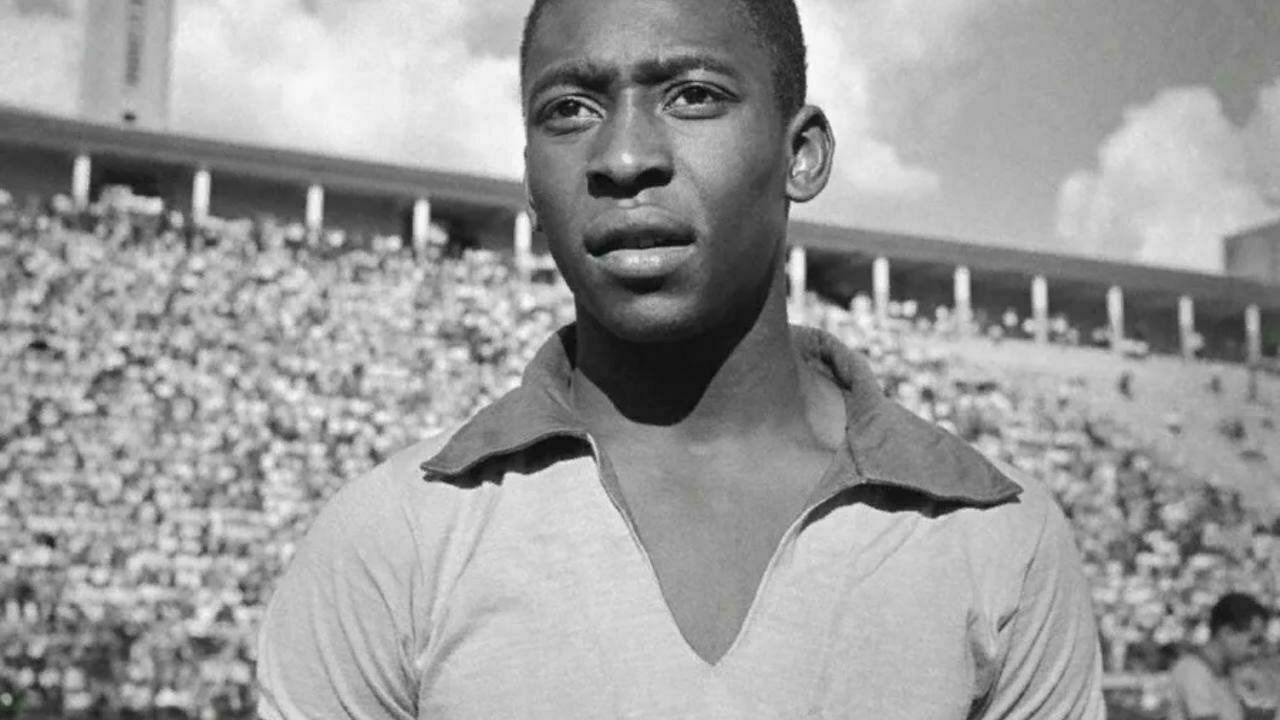
Now Pele will play in Heaven... The world takes farewell of the "king of football"
The sad news that came on Thursday, December 29 from Brazil about the death of Edson Arantis do Nascimento, or simply Pele, caused so many responses in all corners of the planet that it became clear: the "king of football" was the last person who united the whole world. No wonder the President of Brazil declared three days of national mourning. And one of the symbolic gestures expressing universal grief was the mourning illumination of the famous statue of Christ in Rio de Janeiro.
In addition, the authorities of the English capital highlighted the legendary Wembley Stadium in London. The one where Pele and the Brazilian national team were supposed to win their third World Cup in 1966, but by an unfortunate coincidence could not do it. But they more than filled this gap after 4 years in Mexico City, where Pele became and still remains the only football player who won three World Cups.
We'll play with you in heaven!
The farewell of the man-legend will take place at the stadium of his hometown club "Santos". Today it sounds incredible, but Pele, unlike all other world stars, has never played for European clubs, remaining loyal to Brazil, for whose national team he scored 77 goals.
Pele's worldwide significance is best conveyed by his own words: "Football is good because it unites absolutely everyone: rich and poor, black and white, old and very young. This is the whole magic of the Game".
Today, many people remember Pele's relationship with his "heir", the Argentine Diego Maradona. It is clear that the debate about which of them is better has nothing to do with football, but was specially promoted by journalists. Fortunately, both of them respected each other, ignoring the endless disputes over their names. And in 2005, the football legends met in a TV program, at the end of which the Argentine suggested to Pele: "I've always dreamed of hitting the ball with you, let's do it with our heads." Pele agreed, and they gave a beautiful performance to the delight of the audience. It so happened that Maradona died two years before Pele, on November 25, 2020, and on that day the Brazilian uttered great words: "Of course, one day we will play with you in heaven!"
Sports columnist Igor Shulika, recalling that story today, writes in his blog: "Football is so, very different. Idols are very different. Great, but very different. They are united by a game beloved by millions. And different people look at them, consider them the best, also different people - men and women, academics and robbers, boys and 100-year-old veterans. No one knows how to unite us like Pele and Maradona.
And they also treated each other very warmly, they never argued who was greater. Yes, it is not necessary. Now they will again be able to hit the ball with their head..."
Even the referee was removed so that he would not interfere with Pele's playing
Another columnist Igor Rabiner recalls his colleague, the legendary Soviet journalist Igor Fesunenko, who worked in Brazil for a long time, knew Pele well and wrote a book about him. Rabiner tells one very remarkable episode from it:
"This battered book, published in the same year in 1973, in which I was born, and then did not yet have this priceless autograph for me, struck my childhood imagination.
Pele and Santos are playing in Colombia against a local team. The Colombian referee openly whistles in favor of the hosts. Does not give a clean penalty for the demolition of Pele, counts the goal of the Colombians from offside. At 1:1, the King of football expresses restrained dissatisfaction (yelling, swearing and shoving the referee was not in his style) about arbitration - and is immediately expelled from the field.
Then a shout is heard from the podium: "We pay our money to see Pele on the field, and not this clown judge!" And the COLOMBIANS throw apples, bottles, even stones at the referee.
Almost for the first time in the history of football, they are removed from the field... the judge. Instead, a linesman comes out - and immediately returns Pele. He scores, Santos wins, history becomes a legend.
The only reason I wish I was older is that I didn't see Pele live. Did not live matches with him.
Thank you, King, and goodbye.
P.S. Liked the relevant, albeit sad tweet: since yesterday, football has become a republic."
The channel "This is a story" cites an even more characteristic episode from Pele's life, which is the best evidence that the "King of Football" is much more influential than any politicians.
In 1969, during the Nigerian Civil War, a truce was declared so that the parties could come to the stadium and watch Pele play.
In 1969, Pele, along with his Santos team, had to visit Nigeria, where there was a civil war, with a series of friendly matches. At that time, Santos was so strong that it stopped participating in the Brazilian championships and traveled around the world, receiving huge fees for its matches against local teams. Therefore, it is clear that no one wanted to miss such a spectacle because of such a trifle as an ethnic war. The leaders of the warring parties agreed on a 48-hour truce and informed everyone that they would attend the match. Alas, 48 hours later the war resumed…